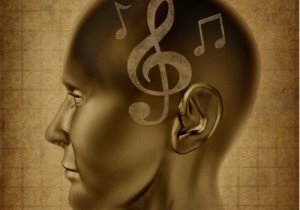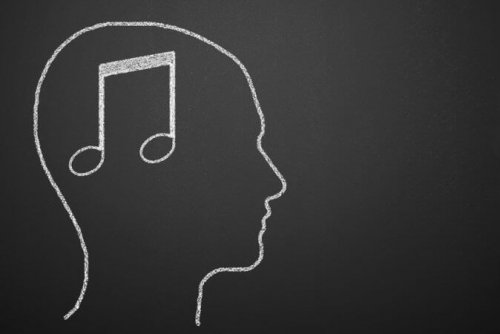Music Can Affect the Way You Think

Message internalization can happen through different kinds of media. Music, as a relevant part of our culture and lifestyle, is one of them. There are many genres that can fit or affect the way you think and feel. In fact, there are even songs that people deem as modern poetry.
Music lyrics are a way of putting out a message into the world. This message, one way or another, stays in people’s minds, especially if the song becomes successful. And so, it affects society in a way that makes people feel part of something bigger than themselves.
How does music affect your body?
Music can have a huge influence on your cognitive development. It’s a relaxation tool that people have been using since ancient times. But how does it actually affect your body?

What neuroscientists call the emotional brain, is in charge of regulating, of course, emotions. It includes the amygdala, the hypothalamus, and the thalamus. Also known as the limbic system, this part of the brain is in charge of managing all your body’s responses to different environmental stimuli: fear, disgust, joy, shame, euphoria, sadness, etc.
When you listen to music, several chemical substances are activated in the central nervous system. These substances encourage the release of different neurotransmitters, such as dopamine and endorphins, which give you a sensation of well-being and joy.
And actually, some songs are capable of generating emotions. This way, the person who empathizes with a certain melodic message, can feel how their limbic system starts to activate.
Music can affect the way you think
As we’ve already mentioned, music can stimulate emotions and it can affect the way you think. For example, in a situation that requires you to reason or make a decision, it can reduce the amount of energy needed to do it. To a degree, the message you hear on a song can influence how you behave.
At a social level, melodies have the power of making people bond. So music basically reinforces the feeling that you belong in a group, especially when you sing the songs that reflect the values of that particular group.
In fact, it’s what many anthems achieve. In the end, a melody and lyrics bring a group of people together, making the song a symbol of what represents and defines them.
An example of influential music: the RAC genre
The RAC genre (Rock Against Communism) first emerged in the ’80s as a variant of rock music, associated with the skinheads movement. In that time, people organized many concerts against racism and separatist movements. As a consequence, different nationalist and right-wing political parties adopted the punk genre for their propaganda.
RAC’s content is mainly racist and xenophobic. The problem arises of course when spectators start internalizing its message and making it their own. The idealization of a group or a singer can lead people to justify or materialize what he or she is singing about.
Plus, prejudices in these types of songs can even change people’s behavior. Some use them especially as a response and as a quick argument in a situation that requires cognitive effort. This way, music allows people to create and believe a pre-set idea about something or someone without first questioning whether those arguments are valid.

The message in this type of music can sometimes blur the line between criminal behavior and freedom of speech. However, at times it’s hard to distinguish between one or the other.
Music really can affect the brain and body
The benefits of music have been demonstrated over and over in many brain and body research experiments. Also, it’s a huge part of our culture and one can even say it defines it, gives shape to it.
But of course, we can’t ignore the fact that songs are a very important way to learn and internalize a message. Therefore, you should pay attention to what you listen to and what you’re getting out of it, because it may change the way you think.
Message internalization can happen through different kinds of media. Music, as a relevant part of our culture and lifestyle, is one of them. There are many genres that can fit or affect the way you think and feel. In fact, there are even songs that people deem as modern poetry.
Music lyrics are a way of putting out a message into the world. This message, one way or another, stays in people’s minds, especially if the song becomes successful. And so, it affects society in a way that makes people feel part of something bigger than themselves.
How does music affect your body?
Music can have a huge influence on your cognitive development. It’s a relaxation tool that people have been using since ancient times. But how does it actually affect your body?

What neuroscientists call the emotional brain, is in charge of regulating, of course, emotions. It includes the amygdala, the hypothalamus, and the thalamus. Also known as the limbic system, this part of the brain is in charge of managing all your body’s responses to different environmental stimuli: fear, disgust, joy, shame, euphoria, sadness, etc.
When you listen to music, several chemical substances are activated in the central nervous system. These substances encourage the release of different neurotransmitters, such as dopamine and endorphins, which give you a sensation of well-being and joy.
And actually, some songs are capable of generating emotions. This way, the person who empathizes with a certain melodic message, can feel how their limbic system starts to activate.
Music can affect the way you think
As we’ve already mentioned, music can stimulate emotions and it can affect the way you think. For example, in a situation that requires you to reason or make a decision, it can reduce the amount of energy needed to do it. To a degree, the message you hear on a song can influence how you behave.
At a social level, melodies have the power of making people bond. So music basically reinforces the feeling that you belong in a group, especially when you sing the songs that reflect the values of that particular group.
In fact, it’s what many anthems achieve. In the end, a melody and lyrics bring a group of people together, making the song a symbol of what represents and defines them.
An example of influential music: the RAC genre
The RAC genre (Rock Against Communism) first emerged in the ’80s as a variant of rock music, associated with the skinheads movement. In that time, people organized many concerts against racism and separatist movements. As a consequence, different nationalist and right-wing political parties adopted the punk genre for their propaganda.
RAC’s content is mainly racist and xenophobic. The problem arises of course when spectators start internalizing its message and making it their own. The idealization of a group or a singer can lead people to justify or materialize what he or she is singing about.
Plus, prejudices in these types of songs can even change people’s behavior. Some use them especially as a response and as a quick argument in a situation that requires cognitive effort. This way, music allows people to create and believe a pre-set idea about something or someone without first questioning whether those arguments are valid.

The message in this type of music can sometimes blur the line between criminal behavior and freedom of speech. However, at times it’s hard to distinguish between one or the other.
Music really can affect the brain and body
The benefits of music have been demonstrated over and over in many brain and body research experiments. Also, it’s a huge part of our culture and one can even say it defines it, gives shape to it.
But of course, we can’t ignore the fact that songs are a very important way to learn and internalize a message. Therefore, you should pay attention to what you listen to and what you’re getting out of it, because it may change the way you think.
All cited sources were thoroughly reviewed by our team to ensure their quality, reliability, currency, and validity. The bibliography of this article was considered reliable and of academic or scientific accuracy.
Koelsch, S., & Siebel, W. A. (2005). Towards a neural basis of music perception. Trends in Cognitive Sciences. https://doi.org/10.1016/j.tics.2005.10.001
Music is known to stimulate the limbic system in our brains, which is the part of the brain in charge of responding to outside stimuli such as emotions.This text is provided for informational purposes only and does not replace consultation with a professional. If in doubt, consult your specialist.







